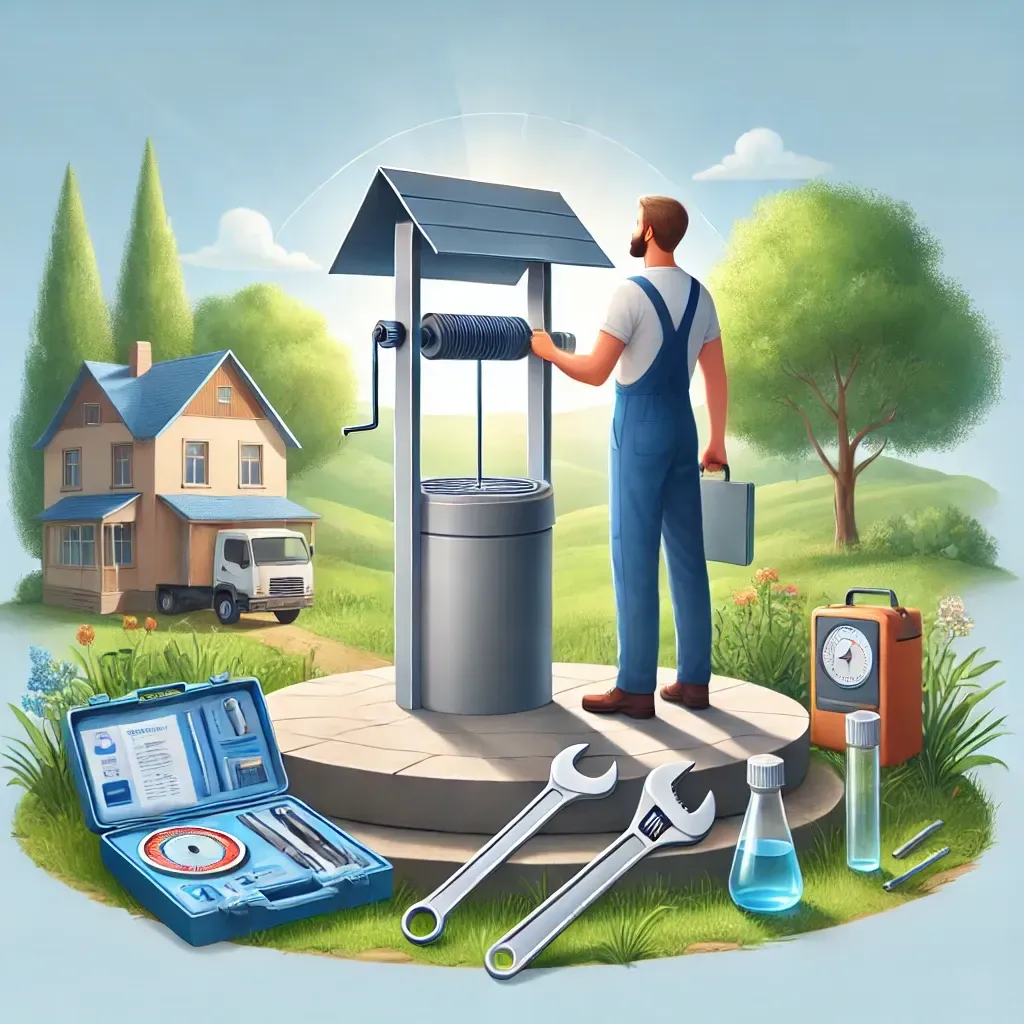
7 Essential Tips for Maintaining Your Water Well
7 Essential Tips for Maintaining Your Water Well
Introduction
Water wells are an invaluable resource for homes that rely on them for clean, safe, and reliable water. However, maintaining a water well system requires proactive care to prevent costly repairs, contamination, or system failures.
In this post, we’ll share seven essential tips for keeping your water well in excellent condition. These practical steps will help ensure your water stays clean, your system remains efficient, and you avoid unnecessary expenses.
Why is Water Well Maintenance Important?
A properly maintained water well system is essential for several reasons:
Health and Safety: Protect your family from harmful contaminants like bacteria and nitrates.
Efficiency: Avoid disruptions in water flow or pressure.
Longevity: Increase the lifespan of your well system, saving you money in the long run.
According to the CDC, private water wells serve approximately 15% of U.S. households, yet many well owners don’t test or maintain their wells regularly, putting their water quality at risk.
7 Essential Tips for Maintaining Your Water Well
1. Test Your Water Annually
Annual water testing is critical to detect contaminants like coliform bacteria, nitrates, and heavy metals. Testing ensures your water remains safe for drinking and cooking.
Pro Tip: Schedule testing during spring to account for seasonal changes in water quality.
2. Schedule Professional Inspections
Have a licensed contractor inspect your well system yearly. They’ll identify potential issues, such as leaks or pump problems, before they escalate into costly repairs.
Why It Matters: A small crack in your well casing could lead to contamination or loss of water pressure.
3. Keep the Wellhead Area Clean
The area around your wellhead should be free from debris, chemicals, and hazardous materials. Proper drainage also prevents water pooling, which can lead to contamination.
Action Step: Maintain a safe radius of at least 50 feet from any potential pollutants.
4. Install Water Filters
Water filters help remove impurities, sediment, and bacteria, providing an added layer of protection for your drinking water.
Consider This: Work with a professional to choose the right type of filter based on your water test results.
5. Maintain Your Septic System
A poorly maintained septic system can contaminate your groundwater, posing a significant risk to your well water quality.
Checklist: Pump your septic tank every 3-5 years and avoid flushing harmful materials.
6. Address Repairs Immediately
If you notice issues such as cloudy water, low pressure, or unusual smells, contact a professional immediately.
Quick Fix: Delaying repairs can lead to more severe problems, including pump failures or water contamination.
7. Document Maintenance and Testing
Keep detailed records of all inspections, water tests, and repairs. These records help track your well’s condition and ensure compliance with local regulations.
Bonus Tip: Many well service companies offer digital tracking systems for easy recordkeeping.
Closing
Maintaining your water well system is the key to ensuring clean, reliable water for your household. By following these seven tips, you’ll protect your investment, prevent problems, and enjoy peace of mind.
For expert water well maintenance and repair services, contact AAA Water Well Services today. Let our 25+ years of experience keep your well running smoothly.
Call-to-Action
Schedule your annual well inspection and water testing with AAA Water Well Services. Contact us today to keep your water clean, safe, and reliable.
